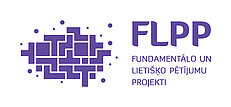Ionic liquids are salts that melt at relatively low temperatures, often below 0 °C. Being ionic compounds, they are extremely non-volatile but still fluid. By combining various cations and anions, around one million of distinct ionic liquids can be obtained, as estimates suggest. This paves the way for designing liquids that can serve a particular function, e.g., as solvents a for certain type of organic transformations, or as electrolytes for power storage and conversio
Our research is focused on understanding the underlying design principles for ionic liquids that would improve the chemical processes’ sustainability by, e.g.,
- improving the energy consumption of chemicals’ synthesis,
- improving the energy consumption of gas mixture separation,
- reducing the use of organic solvents which are volatile organic compounds (VOCs),
- ensuring a non-flammable media for chemical transformations.
- High quality custom-ionic liquid synthesis
- Targeted solvent design for reactions involving gases
- Ionic liquid solvent effects on C-C bond formation reactions
- Ionic liquids for composites in sodium polymer batteries

Project title: Designing Ionic Liquids as Charge Transfer Complexes: a Gateway to Catalytic Applications
Project aim: to elucidate, using organic synthesis and physico-chemical methods, the structural principles of ionic liquids that enable light-induced radical formation and allow such ionic liquids to serve as a photocatalytic medium for chemical transformations.
Project No: 1.1.1.9/LZP/1/24/174
Partner: prof. John Holbrey, Queen's University Ionic Liquid Laboratories (QUILL), Belfast, United Kingdom
Project duration: 07.2025–06.2028
Head: Senior researcher, Dr. Eduards Baķis

Project title: Ionic liquids with low-energy ion pair charge transfer
The project aim to develop and characterize a new, sustainable class of materials – ionic liquids with low-energy ion pair charge transfer – and to advance the ionic liquids research in Latvia by introducing modern world-class physico-chemical methods of analysis at the University of Latvia.
Project duration: 01.2024–12.2024
Head: Senior researcher, Dr. Eduards Baķis
The project "Ionic liquids with low-energy ion pair charge transfer" has been supported by the patron Mikrotikls Ltd and the support has been administered by UL Foundation.

Project title: Synthesis, Structure and Properties of Novel Silicon-based Ionic Liquids: Towards Targeted Solvent Engineering
Project No: 1.1.1.2/VIAA/3/19/549
Partners:
- Laboratoire de Chimie ENS De Lyon (FR), prof. Margarida Costa Gomes
- Imperial College London (UK), prof. Tom Welton
- The University of Auckland (NZ), sen. lect. Cameron Charles Weber
Project duration: 01.02.2020–31.01.2023
Head: Senior researcher, Dr. Eduards Baķis

Project title: Innovative Polymer–Ionic Liquid Composites for Sodium Polymer Batteries
Project No: lzp-2020/1-0391
Project applicant: Institute of Solid State Physics, University of Latvia
Project duration: 01.01.2021–31.12.2023
Head: Assoc. prof., Dr. Guntars Vaivars

 CONFERENCE
CONFERENCE